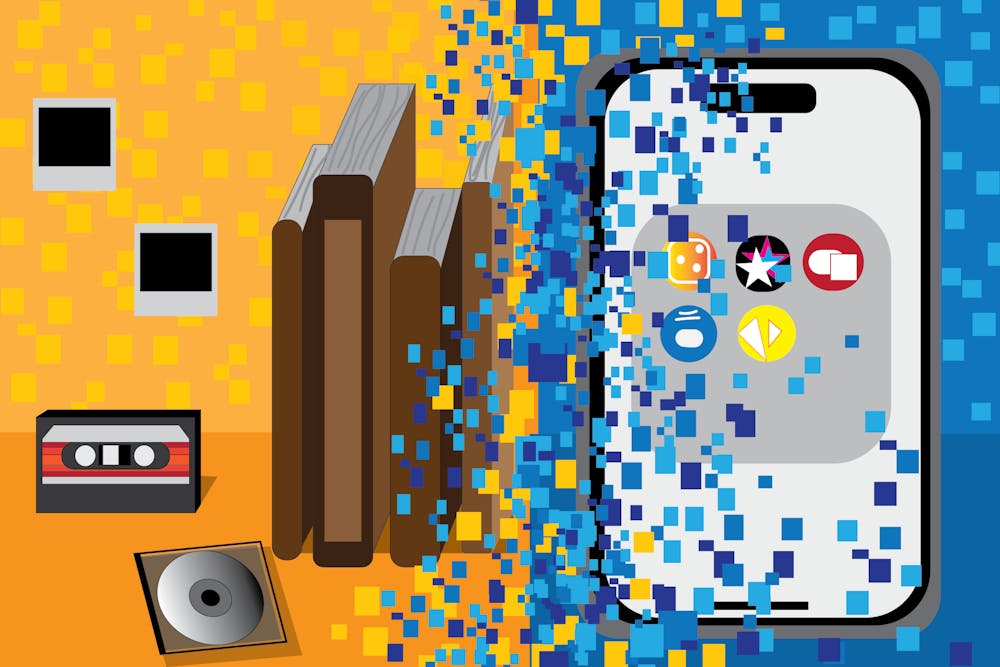When faced with the threat of a TikTok ban, one of my primary concerns was losing all of the useful and important content I had saved. I mourned the videos on easy one-pot recipes, makeup tutorials, hidden gem travel spots and niche movie recommendations. I knew I couldn’t possibly sift through the thousands of videos I had saved since 2018, so I made my peace with the fact that it would all be lost to the void.
While the ban ultimately only lasted about half a day, it revealed how vulnerable our access to media and content is in the digital age. Streaming services and artists can, and often do, choose to remove a piece of content and make it largely inaccessible to the public if it’s not profitable.
Platforms like Hulu, Disney+ and Netflix have fully removed their own shows and movies from their sites. In December, I discovered that the Christmas comedy special “Shrek the Halls” was unavailable for streaming on any platform and could only be purchased as a DVD.
In November, Schoolkids Records was forced to close its doors, in part due to the growth of streaming services. While streaming is convenient and often cheaper, collecting vinyl records, CDs, DVDs and using film cameras provide much more than simple aesthetic value. It’s an insurance policy. It comforts owners with the knowledge that even if an artist decided to remove their entire discography from platforms, their iCloud photo storage didn’t update before their phone broke or, in my case, “Shrek the Halls” became unavailable online, there still exists a copy that they have full ownership of and control over.
But the issue of who controls our access to digital media and content isn’t just about wanting to see a particular movie or show whenever you want to. It’s also about who gets to control our historical narrative.
The Oscar-nominated documentary “No Other Land”, which shows destruction in the West Bank during Israeli occupation, struggled and failed to find a U.S. distributor due to its subject matter. Besides a weeklong showing at a theatre in Manhattan and a few festivals, the film directed by a collective of Palestinian and Israeli activists has been nearly impossible to see in-person or stream online in the U.S.
The internet is credited for its ability to make information and content ultra accessible — at times criticized for making some things too accessible. Ideally, users would listen and learn from alternative perspectives that they otherwise would have never been exposed to. Yet, in reality, streaming services and social media apps have also decreased accessibility in their roles as the gatekeepers between audiences and creators who must be appeased before handing over the key.
TikTok has become an increasingly important part of the music industry due to its power to make songs and artists go viral, with songs becoming shorter to better suit the app. However, there are thousands of deserving artists whose work you’ll never hear if you only look online.
Over the summer I had the chance to visit the WXYC station, the UNC student-run radio station founded in 1977. Inside, the walls were covered with shelves of CDs. There were household bands like The Beatles and smaller artists like Mitski and Adrianne Lenker. There were also CDs from artists that aren’t available on Spotify, from different places all around the world, and that falls into niche categories like Habibi Funk.




